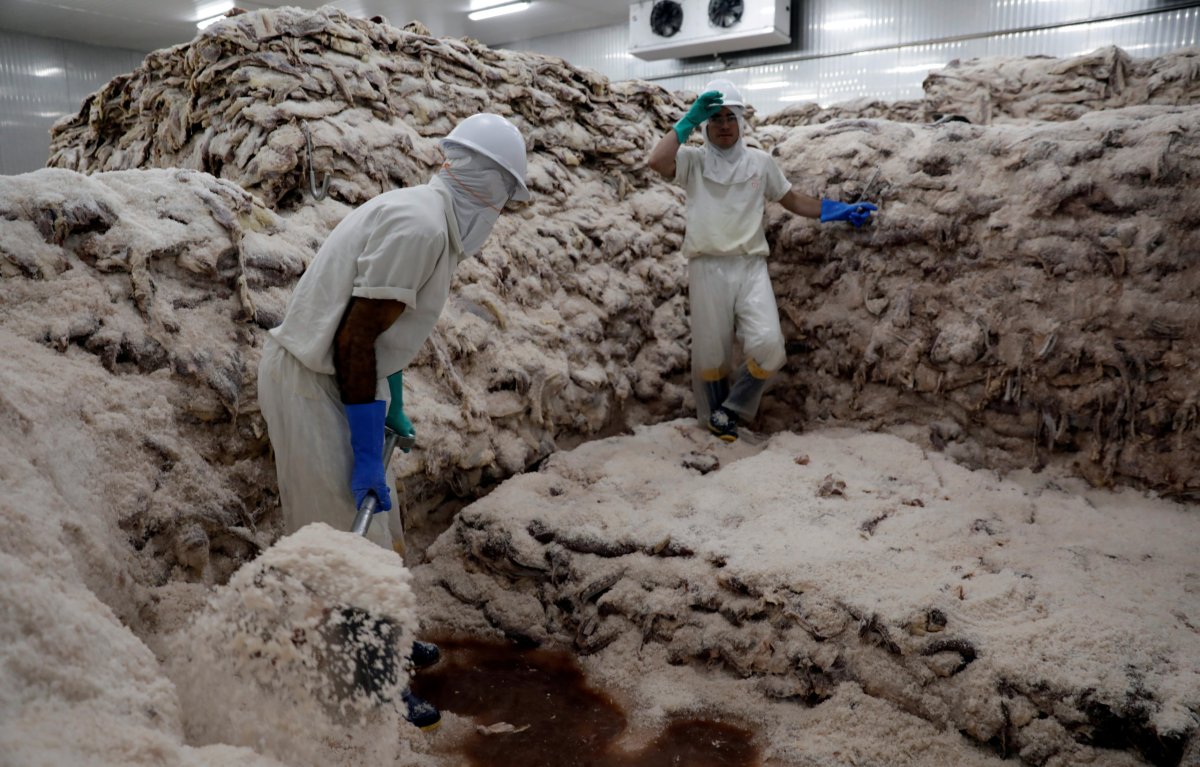BRASILIA (Reuters) – China has not approved any new Brazilian meat plants for export this year because of the coronavirus pandemic, an official at Brazil’s Agriculture Ministry told Reuters, adding that all approvals were on hold until the crisis eases.
The freeze comes despite the fact that Brazil and China implemented a new system in January intended to speed up approvals, said Orlando Leite Ribeiro, international affairs secretary at Brazil’s Agriculture Ministry.
The ministry tried to get in touch with Chinese counterparts early this year to begin using the system, but at that time, as the coronavirus threat emerged, China’s General Administration of Customs (GACC) was not working normally, Ribeiro said.
Now that Brazil has been hit by the outbreak, many public employees are working from home to avoid spreading the novel coronavirus and associated COVID-19 disease, preventing the necessary meetings to gain new plant approvals, he said.
There is still good will on both sides, he added.
“What is happening is a case of temporary neglect. China was affected first by COVID-19 and when China started to get back to normal, Brazil was affected by COVID-19,” Ribeiro said in a phone interview late on Monday.
New approvals aren’t likely until Brazil’s outbreak eases, which could take months, he said.
China is the largest buyer of Brazilian beef, pork and chicken. Meat sales had been expected to continue rising steadily amid the Asian swine fever, a disease that decimated China’s hog population and sent it looking abroad for pork and other alternative proteins.
Dozens of meatpacking facilities approved last year have already gained export permissions and are not affected, Ribeiro said. Brazil announced Chinese approvals for 25 new plants in September and 13 more in November.
The new system agreed in December would allow for China to conduct “virtual inspections” of plants for export via remote video link, replacing the previous need for a Chinese delegation to visit plants in person. It was first tested in September.
“The inspection by video conference was a total success. The Brazilians liked it; the Chinese liked it,” Ribeiro said.
But the system still requires many people on the Brazilian side from various departments, as well as translators, to be in a room together at the Brazilian ministry – and a similar gathering on the Chinese side – along with a team on the ground at the meat inspection plant.
“We can’t mobilize a team to do a video conference … it’s a lot of people together in various places, which we’re avoiding at the moment” to limit the spread of the disease, Ribeiro said.
He said it was impossible to say what impact the coronavirus would have on the global market for Brazilian meat and if China would keep buying more.
“There’s a change in all patterns in consumption. So in truth, I can’t tell you how Chinese or global demand for meat will be,” Ribeiro said.
(Reporting by Jake Spring; Additional reporting by Ana Mano; Editing by Brad Haynes and Bernadette Baum)






















